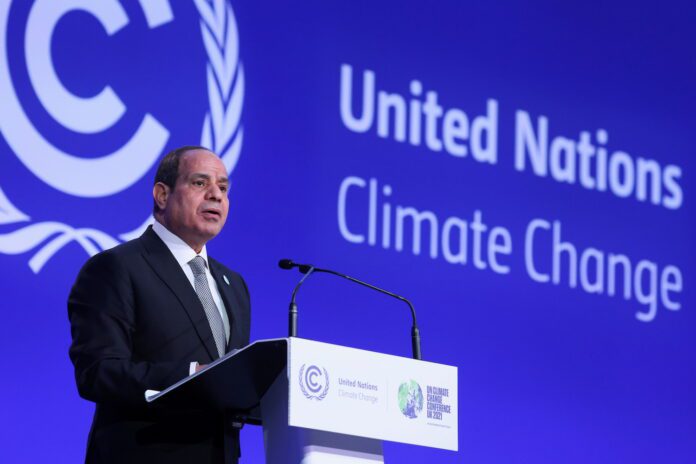The COP27 climate summit in Egypt is approaching, bringing representatives from all around the world to discuss global objectives for addressing the greatest challenge of our time: climate change. Pakistan is one of the countries most impacted by long-term changes in temperatures and weather patterns. At the largest international conference on the subject, it has to make a stronger case for climate justice.
Pakistan contributes modestly to overall global greenhouse gas (GHG) emissions—among the lowest in the world. Yet, it is one of the countries most vulnerable to extreme fluctuations and, currently, lacks the technical and financial capacity to adapt to the detrimental impact caused by climate catastrophes.
In a press conference, the Ministry of Climate Change (MOCC) disclosed distressing information about the effects of long-term changes in temperatures and weather on Pakistan, which produces less than 1% of global carbon emissions. The country has had 152 extreme occurrences during the past 20 years, many of which have been brought on by climate change, including the most recent devastating floods.
According to the government, the frequency of glacial lake outburst floods (GLOF) has increased by 300% in just one year. Pakistan has had the hottest cities in the world for three years running, and the frequency of high-intensity heat waves has climbed to 41 days per year. According to the estimates provided by the government, the country will probably experience absolute water scarcity by 2025, or three years from now. Food insecurity is also anticipated to increase from 40% to 60% by 2050, in addition to a lack of water.
However, the estimated 2 to 3-foot rise in sea level along the coast poses a threat to the very life of cities like Thatta, Badin, and Karachi, the nation’s most populous metropolis, and is expected to cause a threefold increase in climate-induced migration from 0.7 million to 2 million by 2050.
Given the plethora of climate change-related disasters that await Pakistan, the federal government is now preparing to draw attention to the country’s critical position during the 27th Conference of the Parties (COP), which will take place in Egypt later this month. Participating nations in the United Nations Framework Convention on Climate Change (UNFCCC) summit are known as “COP” participants (UNFCCC).
The states that have ratified the 1992-created UN Framework Convention on Climate Change (UNFCCC) are collectively known as the Conference of the Parties (COP). They are obligated to cooperate to keep greenhouse gas concentrations at a level that would preclude hazardous anthropogenic (human-induced) interference with the climate system.
In November 2021, Glasgow, Scotland, hosted COP26. Representatives from around 200 countries and 120 world leaders attended. The culmination of this was the Glasgow Climate Pact, which reaffirmed the 2015 Paris Agreement goal of “keeping the increase in global average temperature to well below 2°C over pre-industrial levels and pursuing efforts to reduce it to 1.5°C.”
Sherry Rehman, the federal minister for climate change, said in a statement that the government intended to bring up commitments made in earlier conferences. “A pledge was made in 2009 that $100 billion would be raised annually for climate financing, but this has largely gone unfulfilled. The use of fossil fuels by major polluters was also promised to be reduced,” Rehman said.
Rehman said that Pakistan has neglected climate change for a very long time and has not treated it as a serious concern. “Climate change is happening right now and affects people’s lives. Rehman said at the press conference: We must take it seriously, if not for our sake but for the sake of our future generations,” said the federal minister.
Extreme climate events such as floods, droughts, seasonal vulnerability, and shifting rainfall patterns have an impact on agricultural systems as well. The majority of people live in rural areas in Pakistan, where 24.3% of the population lives in poverty, and hence is more vulnerable to the effects of climate change. Pakistan’s economic growth has also been hampered due to the damage caused by extreme weather conditions such as floods, heavy rainfall or extreme dry seasons, locusts, etc., causing the loss of crops and vegetation.
Pakistan is currently leading the charge along with other developing countries in advocating for issues like carrying out commitments made at previous conferences, creating transparent climate financing mechanisms, establishing specialized loss and damage (L&D) finance facilities, and increasing funding for climate adaptation. However, each year, the news is discouraging. Pakistan and other countries suffer because of the insensitivity and lack of accountability of the developed countries – who have mostly paid lip service to the problem. Pakistan now seeks justice.
Some solutions can cut greenhouse gas emissions by 20% and help the world achieve the 1.5-degree target, such as reducing emissions from maritime transport, using natural solutions, changing diets to include more low-carbon food from the ocean, using offshore wind (or other offshore renewable energy), and even storing carbon in the seabed.
There has to be a commitment to carbon and heat mitigation, especially from the countries causing them the most. Tree planting in cities in the urban landscape, and investment in that kind of green, can certainly help in carbon sequestration. The key actors also need to think and do something concrete about designing housing solutions for those living on the edge.
COP 27 is around the corner. COP28, COP29, COP30, and so forth will all happen. Negotiations will always continue. However, there is also a lot of room for all parties to work together practically on the ground concerning projects that have an impact on people, especially the population in the global south. There is a power dynamic there, and not valuing it equally is one of the reasons that entities do not think to partner with or prioritize victim communities first and foremost.




